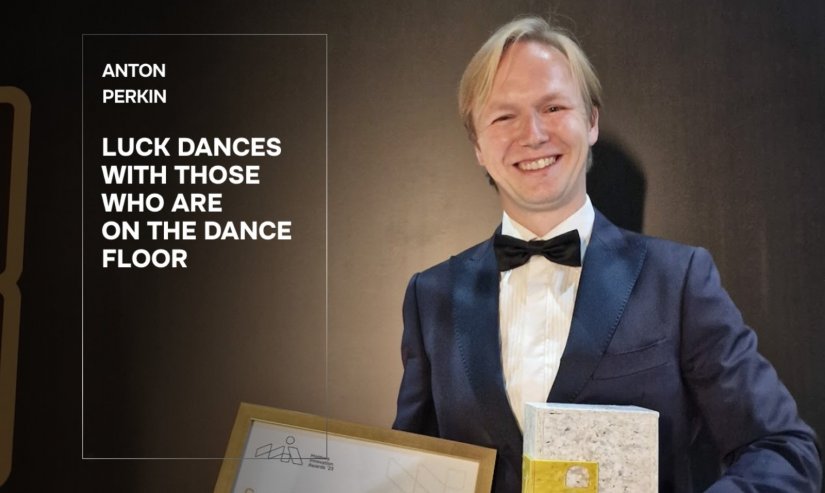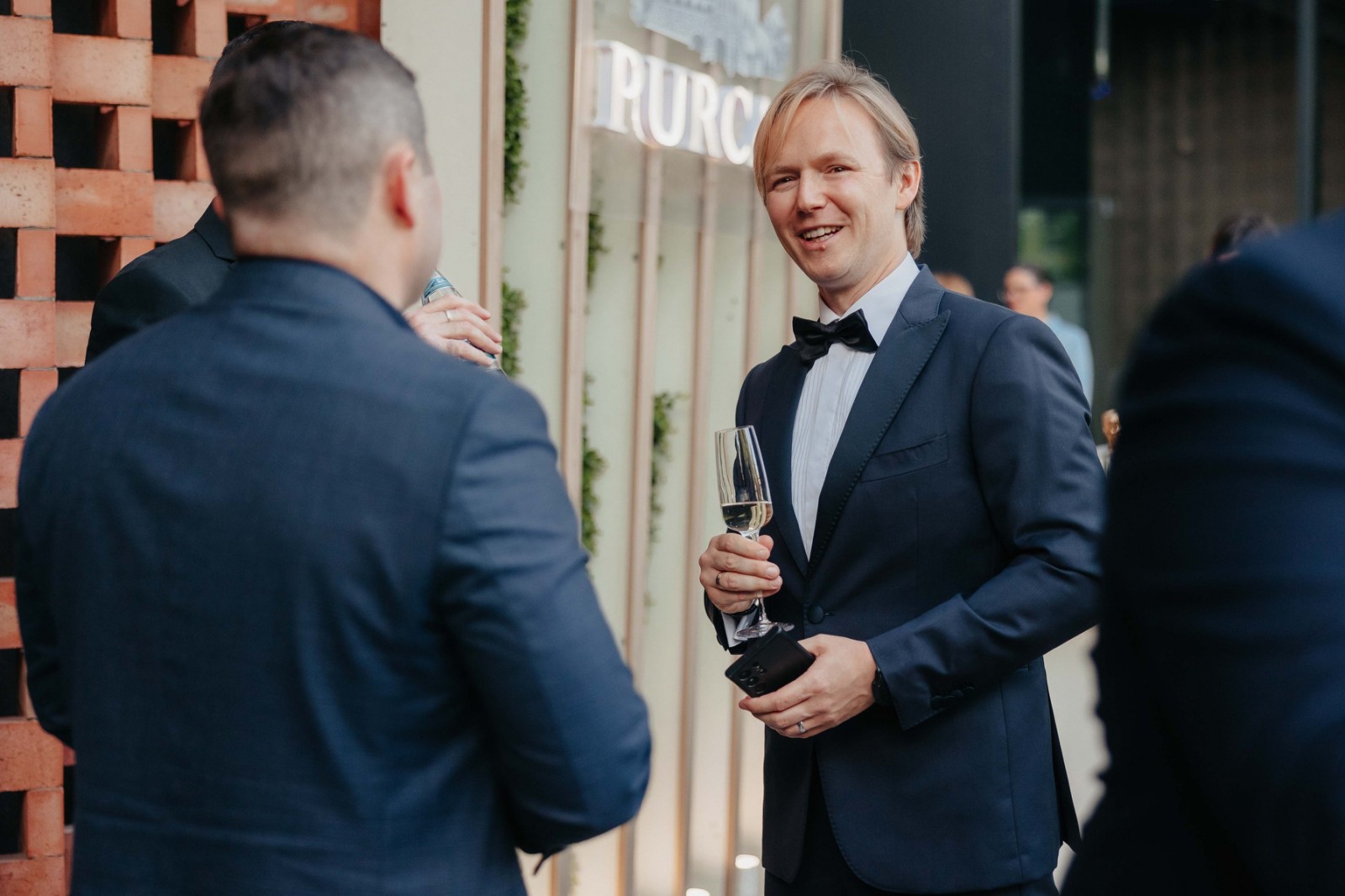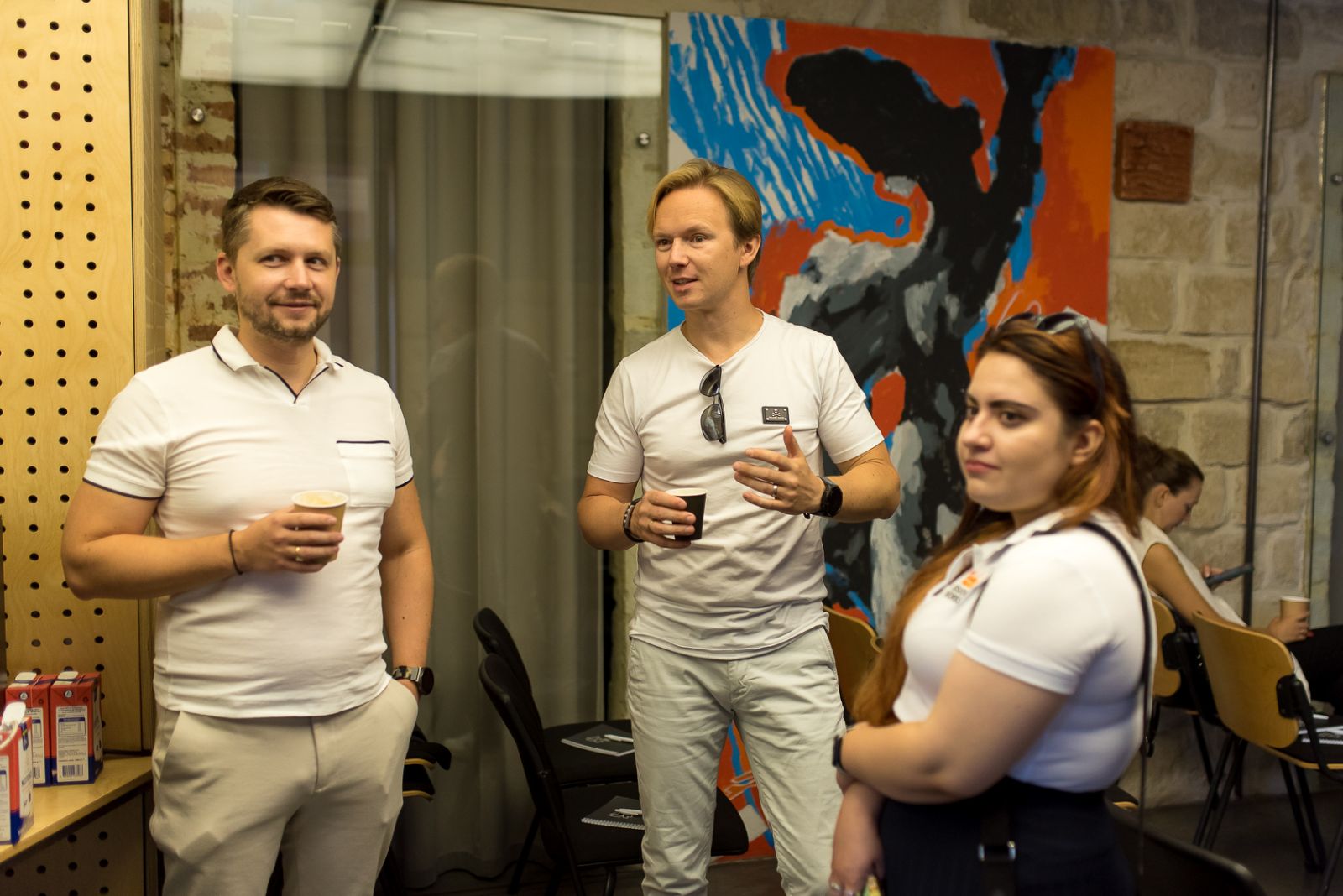
The interview with Anton Perkin, CEO of the IT company FusionWorks.
Anton, hello. The topic for our today's interview is very versatile, diverse, and always relevant. It's startups. To begin with, I think it's worth clarifying the connection between FusionWorks and the field of startup development.
Hello, the development of our own startups is one of the three areas in which FusionWorks operates. The first area involves providing a development team for other startups, companies, or corporate clients, primarily located in Western European countries and the USA. The second is the development of our own startups, which we will discuss in more detail. And the third is our involvement in the development of the Moldovan IT community and the organization of one of the most significant IT events - the Moldova Developer Conference.
The first stage of a startup is always the idea. What comes next?
Every idea, without a doubt, needs to be thoroughly tested and validated. Over the years, we've definitely accumulated our own "startup graveyard" – ideas that either remained at the initial stage, went through a certain process but were not realised, or those that worked successfully for a while but are now outdated.
In practically any IT company, and we are no exception, there are periods when projects conclude, and resources and time become available. This means that we can analyze our startup ideas, delve into them, and try to bring them to life when possible. About 12 years ago, when we didn't have as much experience, it seemed like every idea would make a fantastic startup, but we weren't always right. Now we approach this more rationally, carefully select ideas, analyze them attentively, and conduct customer interviews. We don't spread ourselves too thin by working on a large number of startups. For instance, at the moment, we are concurrently managing three main ones. We won't take on others until we finish these because it's essential to deliver a quality product.
What startups is your team currently working on?
The first one is called Viar.Live The idea was born out of a desire to help photographers who take pictures of real estate for rent or sale. We created a tool that allows you to create a virtual tour from photographs, providing a comprehensive view of the property.
We started with a tool for creating virtual tours, and now it also serves as a tool for promoting these tours. We not only help create virtual tours but also quickly generate a mini-website dedicated to the properties for which these tours are created. These websites can include all the information about the property, its floor plan, photos, price, description, and the virtual tour itself. This is very convenient for real estate agents because they can share a link where the tour and all the necessary property details are available.
Thanks to the virtual tour, the entire property inspection can be done remotely, eliminating the need to travel, spend time commuting, or be physically present at the property. The virtual tour allows for a detailed, almost real-life exploration of all the necessary details. This project is aimed at real estate agents, people in the tourism industry, architects, and property developers. Currently, the startup operates in the international market with around 1500 clients, but in the near future, we plan to expand into Moldova. We have already started negotiations with some companies that may be interested in this.
Viar.Live was part of FusionWorks for a while, but now we have spun it off into a separate company registered in Estonia.

Why Estonia?
For several reasons. Firstly, Estonia is part of the EU, and all European laws work well there. Everything is open, transparent, and investor-friendly. Setting up a company from Moldova is relatively easy and doesn't take much time. Additionally, I can handle all the business processes remotely. After completing all the necessary steps for registering the company in Estonia, we were able to secure an investment of 100,000 euros. This amount was indeed transferred to the Estonian company, although I would have preferred the funds to be transferred to Moldova, but at the moment, that's not possible.
What is the difficulty in?
The difficulty lies in venture investments, more precisely, in the fact that Moldovan legislation is not prepared for them. This is a very important point that I often emphasize because foreign investments are essential for the development of Moldovan startups, which can help local companies grow. Despite the advantages of the IT park, which have contributed to the development of the field, there are still nuances in the legislation that practically block the path for venture investors to our country.
Is the second startup also registered in Estonia?
No, it is registered in Moldova but operates in the international market. The startup is called Dely, derived from the English word "Delivery." Dely is a project designed for restaurants that want to establish their own delivery service. We also have a solution for marketplaces. In other words, we don't limit ourselves to standalone delivery options for restaurants; we are also developing solutions for marketplaces. The client can choose what is more profitable and convenient for them. We provide software that already performs its specific tasks.
Who are the users and clients of Dely?
Regarding the Dely application, we have clients in Romania, as well as clients from more intriguing countries such as Kuwait, Norway, and Denmark. We are currently in negotiations with Trinidad and Tobago.
Dely and Viar.Live are our main startups that we are currently working on. Our third project is still in the development stage, and it will be related to education.
I guess that the education will be related to IT?
Yes, but it won't be exclusively programming; it will cover a wide range of other IT-related areas, such as a course on negotiations and a course on marketing. This year, we plan to launch the first educational courses through our academy. These courses will cater to beginners, providing training from scratch, as well as courses for professionals looking to enhance their skills.
This will be an online academy, and all learning will be conducted remotely. While with other startups, we immediately went international, the academy will initially focus on the Moldovan and Romanian markets. The next step will be expanding to other countries, which will depend on the language of instruction. For now, we will offer courses in Romanian and Russian, with plans to introduce courses in English in the future. We plan to launch a pilot course this year, with the main work taking place in 2024. At the Moldova Developer Conference, which will be held on November 4th and 5th, we will announce the launch of our first course.

You and your team have an impressive experience in launching startups. I'm sure everyone wants to know the answer to the question, "How to make a successful startup?" But I want to approach the question differently - why do startups not become successful?
A startup won't become successful if users are not willing to pay for it. That's one of the key criteria. The second point is that you've created something that people don't need, and, to be honest, you often end up developing something that no one wants. Most of the time, when an idea comes to you, it might seem really cool, like everyone will be interested in it, and most importantly, users will pay for it. But more often than not, this is a mistaken belief. What seems relevant and interesting to you in that moment, and what you assume will be of interest to other users and that there will be many of them, often holds no real appeal.
One should always be cautious about ideas that seem innovative, especially when you get the feeling that no one has thought of them before. In the end, you are likely to find yourself in a situation where it has already been invented before, but it turned out that no one needed it. Or you might be lucky and truly be a genius who has discovered something revolutionary.
That's why it's not a bad idea to enter the market with a product that already has analogs. You'll have a better chance that your startup will be in demand because people are already using something similar.
Startups can also fail because you misallocate your funds. For example, funds are directed towards endless product improvement and refinement but not towards marketing. Sometimes, you just need to stop refining the product and start selling it. It's better to launch even with an imperfect startup at the right time than to delay its release.
Don't listen to and rely on other people's success stories because they probably won't help you. In every situation, there's a degree of randomness that you can't predict and that is beyond your control. But to catch that randomness, you must remember that luck dances with those on the dance floor.
This material was prepared with the support of the Future Technologies Activity (FTA) Project in Moldova, funded by USAID, Sweden, and the United Kingdom in partnership with the Moldova Innovation Technology Park. The content of the material represents the author's point of view and does not reflect the views of the U.S. government, Sweden, or the United Kingdom.









